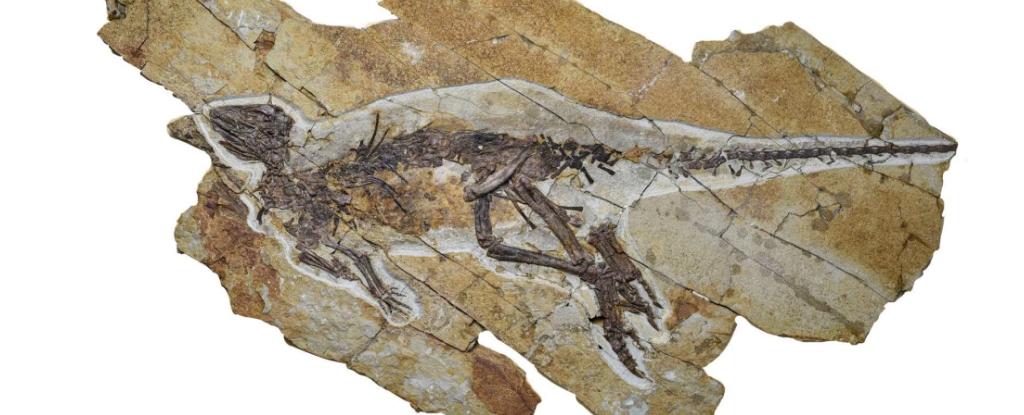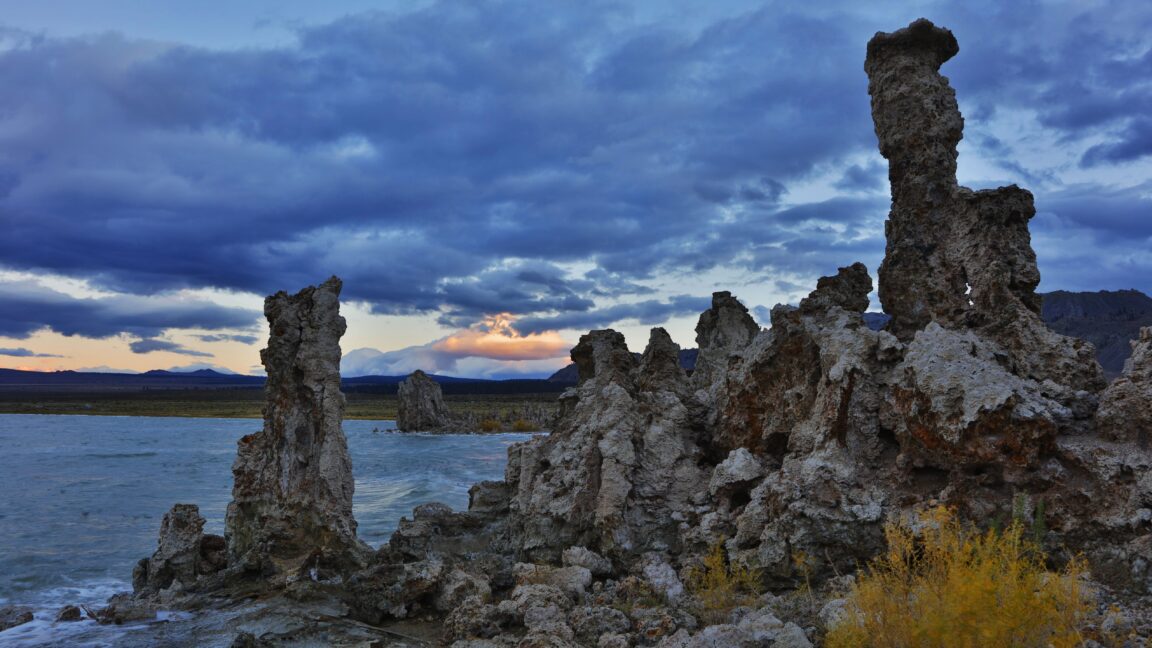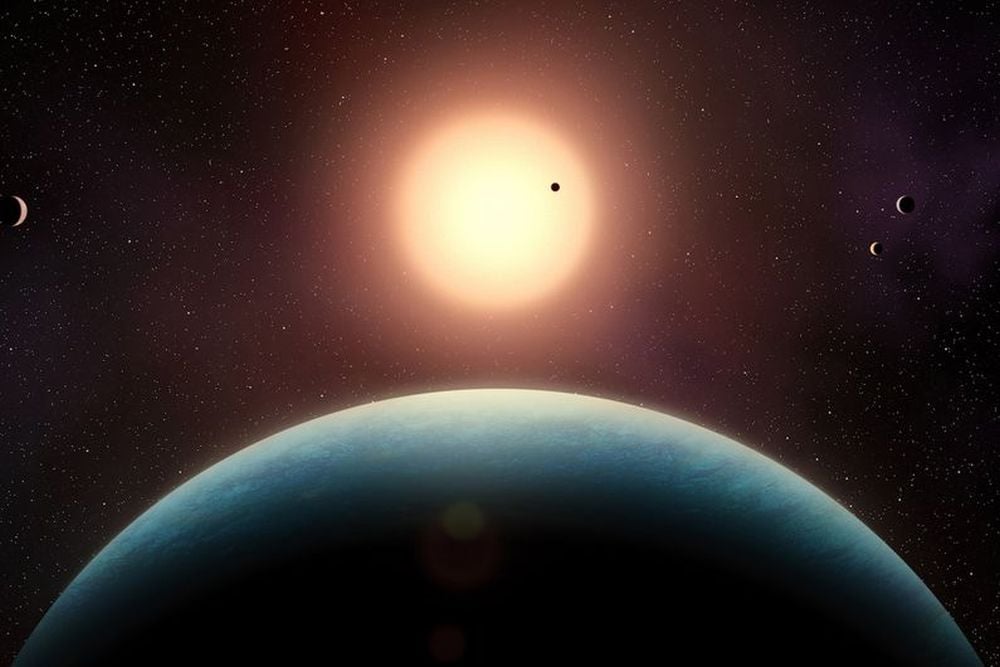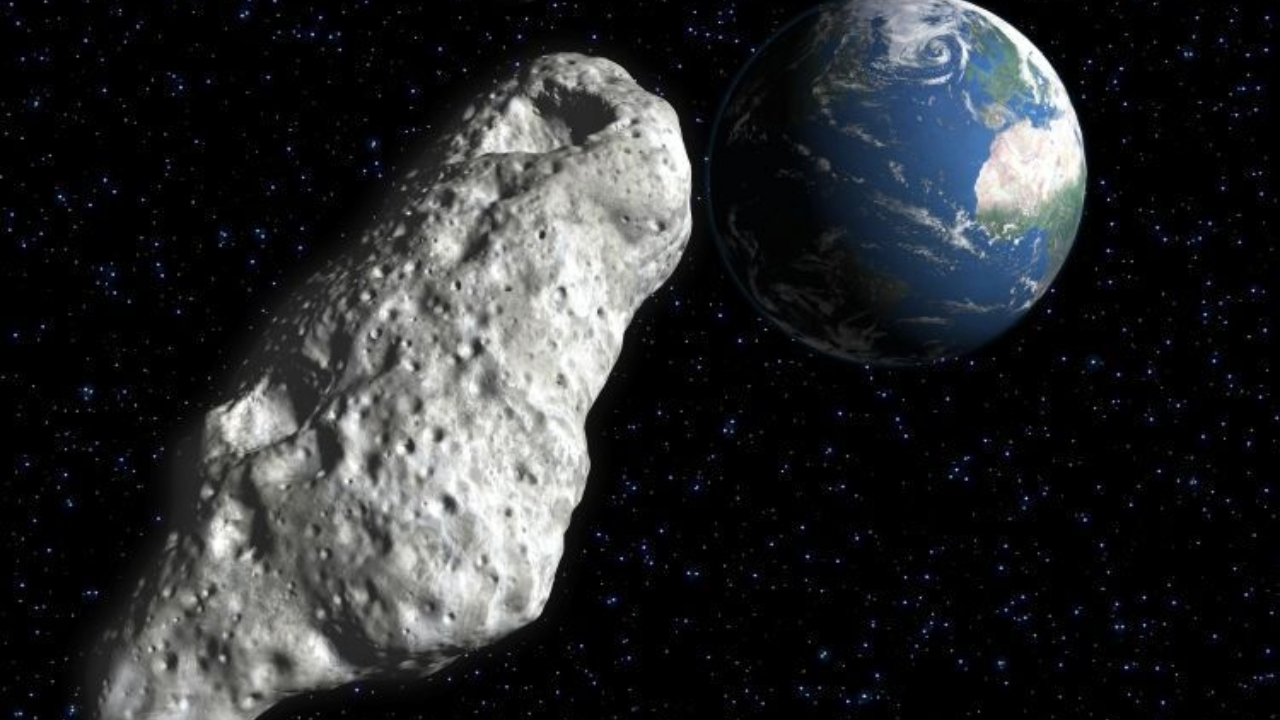A newly discovered exoplanet may offer astronomers a rare look at how planetary evolution unfolds, revealing the processes that transform young, hydrogen-rich worlds into either gas-shrouded mini-Neptunes or dense rocky super-Earths. The planet, named V1298 Tau b, appears to occupy a “missing link” stage of planetary development, according to new James Webb Space Telescope (JWST) observations. A Proto-Sub-Neptune With Uncertain …
Read More »Science
How drought and sea level rise feed on each other
Overpumping groundwater, worsening droughts and more rapid evaporation due to higher temperatures have caused a drastic decline in the amount of available freshwater, according to a new study. “Continental drying” has redirected the planet’s total water to the oceans to such degree that it has now surpassed melting ice sheets as the biggest contributor to global sea level rise, the …
Read More »Jaw-Dropping Video Shows NASA’s Plan to Deliver a Helicopter Swarm to Mars Without Landing
It’s been more than a year since the Ingenuity helicopter broke one of its blades, ending its experimental stint on Mars. On the heels of this wildly successful NASA mission, a defense contractor has introduced a new design concept to succeed the iconic Mars chopper—one that would release multiple vehicles to spread across the Martian landscape at the same time, …
Read More »What Galileo Discovered Just Before Jupiter Swallowed It Whole
In a mission that changed our understanding of gas giants, NASA’s Galileo spacecraft made history not just in orbit but also in its dramatic descent into Jupiter’s atmosphere. Launched in October 1989, Galileo became the first spacecraft to orbit an outer planet, setting new scientific milestones over its 14-year journey. The mission provided a unique glimpse into Jupiter’s turbulent environment, …
Read More »Camera Captures Adorable Animal For The First Time In Over A Decade
Deep in the Tangkulap Forest Reserve in Malaysia, conservation organization Panthera has an array of cameras set up, hoping to catch glimpses of different animals. While reviewing photos from cameras meant to document the elusive and endangered Flat-headed cat, researchers did a double take. A camera had captured someone unexpected — someone who hadn’t been seen in Malaysia in 11 …
Read More »Ancient Voice Box Finally Reveals How Dinosaurs May Have Sounded : ScienceAlert
Despite what the movies tell us, dinosaurs probably didn’t roar at their prey. It’s more likely that they chirped like birds, based on a well-preserved new fossil with an intact voice box. A team of researchers from the Chinese Academy of Sciences discovered an almost-complete skeleton of a new dinosaur species in northeastern China. This two-legged, 72 centimeter (2.4 foot) …
Read More »Widely panned arsenic life paper gets retracted—15 years after brouhaha
In all, the astronomic hype was met with earth-shaking backlash in 2010 and 2011. In 2012, Science published two studies refuting the claim that GFAJ-1 incorporates arsenic atoms into its DNA. Outside scientists concluded that it is an arsenic-tolerant extremophile, but not a profoundly different life form. Retraction But now, in 2025, it is once again spurring controversy; on Thursday, …
Read More »Astronomers Find Five Rocky Planets Around a Small Red Dwarf, Including a Super-Earth in the Habitable Zone
Finding an exoplanet in a star’s habitable zone always generates interest. Each of these planets has a chance, even if it’s an infinitesimal one, of hosting simple life. While the possibility of detecting life on these distant planets is remote, finding them still teaches us about exoplanet populations and solar system architectures. When TESS found three planets orbiting the M-dwarf …
Read More »NASA or the Space Force: Who should protect Earth from dangerous asteroids?
Recent NASA budget uncertainties could make one space agency endeavor up for grabs — defending Earth from incoming space rocks. That effort, undertaken by NASA for many years, could be given to the U.S. Space Force, which has a much bigger new budget. On the other hand, is a Space Force takeover of taking out potentially dangerous asteroids warranted, and …
Read More »Neanderthals were not ‘hypercarnivores’ and feasted on maggots, scientists say | Science
For hungry Neanderthals, there was more on the menu than wild mammals, roasted pigeon, seafood and plants. Chemical signatures in the ancient bones point to a nutritious and somewhat inevitable side dish: handfuls of fresh maggots. The theory from US researchers undermines previous thinking that Neanderthals were “hypercarnivores” who stood at the top of the food chain with cave lions, …
Read More »








